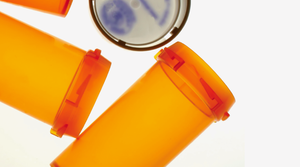According to the Consumers Health Forum of Australia (CHF), a body which represents healthcare consumers, Australians are paying way too much for their generic drugs.
Australians pay too much for generics
Generics/General
|
Posted 11/10/2013
 0
Post your comment
0
Post your comment

Each day, according to the CHF, Australians pay AU$3 million more for generics than they would if they bought them in New Zealand and UK.
In Australia, the prices for most drugs are set by the government through the Pharmaceutical Benefits Scheme (PBS). This results in some of the highest prices in the world being paid for generic drugs. For example, when considering atorvastatin, the wholesale price for a typical dose of 40 mg in Australia is AU$38, compared to less than AU$3 in England and New Zealand.
The reason for such high prices is blamed on the fact that the PBS is governed by an agreement that is only due to end in July 2014 and which sets the prices of all generic drugs on the PBS. The PBS uses a system of price disclosure to set the prices of medicines based on the wholesale prices over the previous year and the system takes about six months to implement. This means that it takes 18 months before the prices of any medicines can be adjusted. Therefore, any reductions in the wholesale price of generic drugs do not result in price reductions for the Australian Government or for patients for a period of up to 18 months. Under current policies, pharmacies get to keep any discounts.
England also uses a system of price disclosure, but prices are reviewed every three months, compared to every 18 months in Australia, resulting in much lower prices for generics in England, see Figure 1.
Figure 1: Generics prices in Australia and England
For the 20 most expensive generic drugs, Australia pays around AU$1.8 billion each year, whereas if the government could pay English prices, the CHF believes that would be reduced to around AU$735 million, a savings of AU$3 million a day.
The Australian Generic Medicines Industry Association (GMiA), however, disagrees with the CHF’s findings. GMiA points to the fact that Australian patients are free to choose between the brand-name or generic drug and in fact one in four generic medicines dispensed on the PBS are still the brand-name originator drug. They also point to the fact that both in New Zealand and the UK the governments have introduced policies that achieve high levels of utilization of generic medicines, which enables very low prices to be achieved.
GMiA insists that the ‘supply of the most affordable generic medicines is reliant upon increasing the utilization of generic medicines’. For this reason GMiA is calling on the Australian Government ‘to adopt policies that promote and encourage the uptake of more affordable generic medicines’.
Related article
Why choose generic medicines initiative launched in Australia
Patients’ knowledge and perceptions about generics in Australia
Permission granted to reproduce for personal and non-commercial use only. All other reproduction, copy or reprinting of all or part of any ‘Content’ found on this website is strictly prohibited without the prior consent of the publisher. Contact the publisher to obtain permission before redistributing.
Copyright – Unless otherwise stated all contents of this website are © 2013 Pro Pharma Communications International. All Rights Reserved.
Source: CHF, GMiA,NHS, PBS
Research
Japan’s drug shortage crisis: challenges and policy solutions
Saudi FDA drug approvals and GMP inspections: trend analysis
EMA launches European shortages monitoring platform to tackle persistent medicine shortages

Generics/General Posted 03/12/2024
FDA releases one-year progress report for the Generic Drug Cluster

Generics/General Posted 28/10/2022
The best selling biotechnology drugs of 2008: the next biosimilars targets









Post your comment